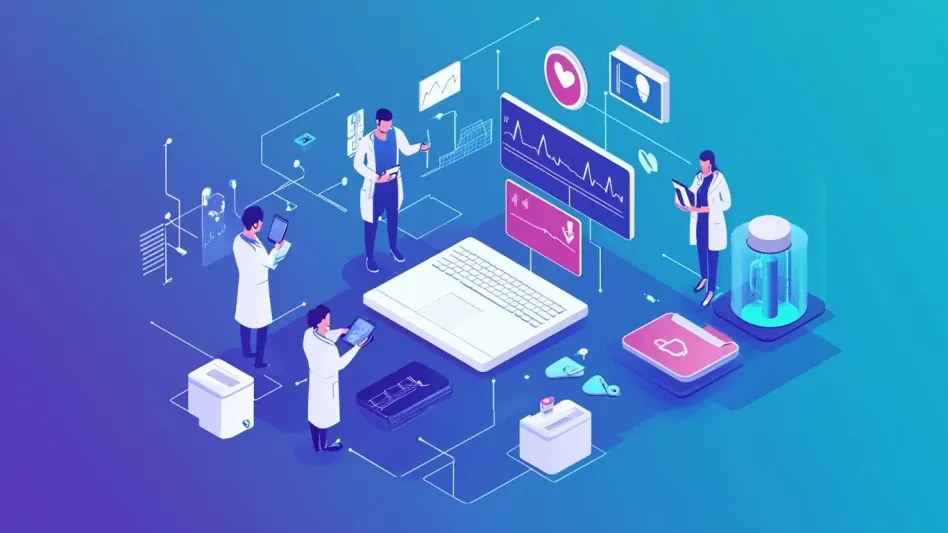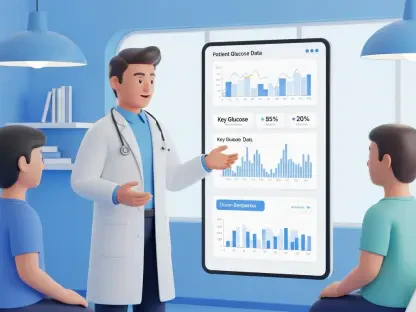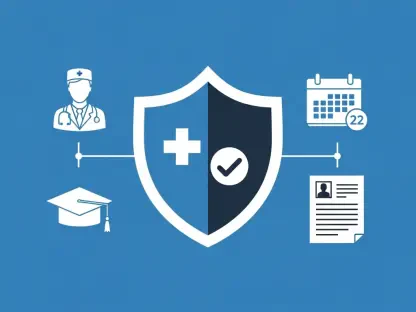The 2025 HIMSS Global Health Conference & Exhibition spotlighted the rise of AI-powered agents, highlighting predictions made by Seth Hain, senior vice president of R&D at Epic. The conference revealed how Epic, a leading force in electronic health records (EHR), is at the forefront of AI integration, aiming to transform healthcare processes significantly. Seth Hain’s foresight during the previous year’s event has materialized, with AI agents becoming a pivotal trend in healthcare technology, propelling Epic’s advancements into the limelight. This strategic vision underscores Epic’s dedication to not only maintaining but amplifying its influence within the industry.
Epic’s Strategic AI Investments
Epic has been channeling significant resources into AI, particularly focusing on conversational AI. Seth Howard, vice president of R&D at Epic, shared insights at the conference about their agentic platform’s evolution over the past year, integrating AI into the core functionalities of Epic. This evolution marks a significant step toward transforming healthcare delivery, enhancing both efficiency and accuracy. The generative AI components designed to understand chart information and automate numerous healthcare tasks epitomize the innovative streak driving these developments. Epic’s integration of AI signifies a profound shift, paving the way for smarter, more responsive healthcare systems.
The foundation of Epic’s AI initiatives revolves around the creation of reusable components capable of understanding and taking action on chart information. This approach leverages generative AI to automate various healthcare tasks that traditionally required manual intervention. Such advancements are not only innovative but pivotal in enhancing healthcare delivery efficiency. Epic’s investment strategy, focusing heavily on AI, underscores its commitment to driving substantial improvements in healthcare processes, reducing clinician burden, and ensuring that patient care remains paramount. These efforts reflect a broader aim to redefine healthcare through advanced technology, positioning Epic at the forefront of the industry.
Conversational AI Agents Enhancing Patient Interactions
One of Epic’s standout innovations is the development of conversational AI agents that assist patients in preparing for medical appointments. These agents engage with patients, asking about their visit goals and ensuring pre-visit tests are completed, thereby summarizing critical information for both patients and physicians. This interactive approach not only enhances the overall patient experience but also optimizes the efficiency of medical visits. The ability of these AI agents to analyze similar cases and potentially identify treatment options or diagnostics offers a significant advantage in providing data-driven insights, ultimately improving patient outcomes.
The application of these AI agents comes at a pivotal time as the U.S. contends with a shortage of primary care physicians. AI’s ability to augment the workforce and aid physicians in managing increased demand for care is indeed invaluable. As patients interact with these AI-powered agents, the seamless integration of information into their medical history ensures a continuity of care that might otherwise be disrupted. Epic’s initiative in deploying these conversational AI agents exemplifies a larger trend in healthcare towards leveraging technology to address systemic challenges, thereby improving access to quality care even amidst workforce shortages.
Generative AI Capabilities and MyChart Integration
Epic’s generative AI capabilities, leveraging foundational models from OpenAI, have led to around 125 features currently under progress within the EHR system. Among these features, MyChart in-basket augmented response technology stands out, auto-generating responses to patient messages. This innovative solution, being utilized by 150 healthcare systems, is generating a million drafts monthly as reported by CEO Judy Faulkner. The deployment of such technology aims to streamline clinician workflows and enhance patient experiences by automating routine tasks that typically take up significant time for healthcare providers. This approach not only speeds up interaction processes but also improves the accuracy of responses, fostering better patient-provider communication.
The incorporation of AI advancements into MyChart demonstrates Epic’s commitment to enhancing functionalities that directly impact patient care and clinician efficiency. By expediting revenue cycle processes and driving critical clinical interventions, these technologies are transforming how healthcare providers manage their daily operations. The generative AI-driven solutions significantly reduce the cognitive load on clinicians, offering them more time to focus on complex patient care needs. The ease with which these technologies integrate into existing systems underscores their value, providing a seamless transition that optimizes healthcare delivery across the board.
Enhancing Clinician Workflows with AI
Epic’s AI features help summarize patient data, provide updates on patient histories, create specialty-specific summaries, and assist in drafting hospital discharge notes. These capabilities mark a significant improvement in clinician workflows, reducing the time spent on administrative tasks and allowing healthcare professionals to focus more on patient care. About two-thirds of providers are using generative AI within the EHR, reporting significant time savings and reduced cognitive load. The impact of these AI tools is evident in enhanced job satisfaction among clinicians, which is a key factor in workforce retention. By easing the administrative burden, Epic’s AI-driven solutions contribute to a more streamlined and efficient healthcare environment.
Such improvements in clinician workflows are crucial for maintaining quality care amid increasing patient loads and complexities. The ability to quickly access and summarize patient histories and data ensures that healthcare providers can make informed decisions without being bogged down by manual data entry and retrieval. These AI tools effectively transform the clinician’s role by minimizing routine tasks, thereby enhancing their ability to deliver personalized and attentive care. The feedback from providers using these technologies highlights the positive shift in their daily operations, aligning with Epic’s core mission to elevate healthcare standards through innovative technological solutions.
Collaboration with Third-Party Vendors
Epic’s proactive collaboration with third-party vendors through its Epic Workshop and Toolbox programs broadens the usage of AI technologies. Partnerships with well-known entities such as Nuance, Abridge, Press Ganey, Genesys, Qualtrics, and Talkdesk aim to fast-track the development and integration of innovative solutions. These collaborative efforts ensure seamless incorporation of AI-driven capabilities within Epic’s ecosystem, thus expanding both clinical and operational functionalities. The increasing integration of vendor-created apps, including around 200 new ones in the past year, underscores this expansion and highlights Epic’s commitment to fostering a dynamic and robust health IT ecosystem.
The integration standards set by the Toolbox program provide a structured pathway for third-party apps to align with Epic’s existing systems, enhancing interoperability and functionality. This strategic partnership approach enables a broader deployment of advanced technologies, enriching the overall healthcare delivery landscape. The collaboration not only drives technological advancements but also supports a cohesive and unified platform where healthcare professionals can access a wide array of tools, thereby optimizing patient care and clinical operations. These vendor partnerships epitomize Epic’s vision of creating a synergistic environment where innovation thrives and benefits all stakeholders involved.
Advanced Documentation and Genomic Data Integration
Epic’s AI advancements include ambient voice recognition and processing of multimodal inputs such as video and genomic data, enriching clinician documentation. The integration of these sophisticated technologies allows for a more comprehensive approach to patient care, capturing a wide range of data inputs to inform clinical decisions. Over 1,000 vendor-created apps are integrated with Epic, emphasizing the increasing use of FHIR APIs, with over 10 billion monthly calls reflecting the widespread adoption and seamless functionality of these integrations. Epic’s development of new platforms like Aura and Cosnome further extends these capabilities, simplifying provider access to genetic testing information and integrating genomic sequencing data into the Cosmos data set.
The Aura platform exemplifies Epic’s dedication to improving accessibility to crucial genetic data, providing healthcare professionals with the information needed to offer personalized treatments. Similarly, Cosnome’s integration of genomic sequencing data supports precision medicine, enhancing the ability to tailor treatments based on individual genetic profiles. These expansions into genetic and genomic data sets highlight Epic’s forward-thinking approach, pushing the boundaries of conventional EHR functionalities. The convergence of clinical and genomic data within Epic’s systems marks a significant leap towards personalized healthcare, empowering providers with the insights necessary for informed and targeted treatment strategies.
Expanding Business Strategy Beyond EHR
The 2025 HIMSS Global Health Conference & Exhibition spotlighted the significant rise of AI-powered agents, underscoring the predictions of Seth Hain, senior vice president of R&D at Epic. This prominent event revealed how Epic, a pioneering entity in electronic health records (EHR), is leading the charge in AI integration with the aim to significantly transform healthcare processes. Predictions made by Seth Hain during the previous year’s conference have now come to fruition, with AI agents emerging as a major trend in healthcare technology, showcasing Epic’s cutting-edge advancements. This strategic foresight highlights Epic’s commitment to not just maintaining but enhancing its impact and influence within the industry. By introducing AI-powered solutions, Epic is forging a path that underscores its dedication to innovation and leadership in the healthcare sector, demonstrating how technology can effectively revolutionize patient care and operational efficiency in medical practices.









